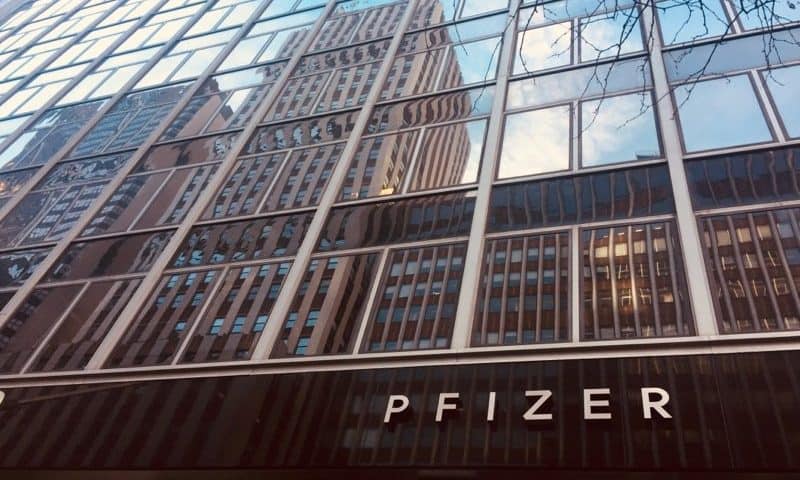The hype around antibody-drug conjugates (ADCs) has been growing in recent years after big bucks deals and approvals from the likes of AstraZeneca/Daiichi and Immunomedics putting a spotlight on the approach.
Now, Cambridge, Massachusetts-based biotech Pyxis Oncology is hoping to get in on the action, and it’s tapping one of the world’s biggest pharma companies for that.
In the new deal, financials of which were not made public, Pfizer will out-license two ADC candidates, to be known as PYX-201 and PYX-203, while also giving Pyxis a license for its ADC technology platform, including various payload classes, linker technology and site-specific conjugation techniques “for the future development of additional ADCs.”
While there were no details on actual figures, as part of the deal Pfizer gets an upfront payment and equity in Pyxis, and can also nab development and sales-based milestone payments, as well as tiered royalties on potential sales.
The Big Pharma will also funnel in an equity investment made by its CV arm, Pfizer Ventures. Again, however, they were no figures released.
“This collaboration represents successful execution of our overarching corporate strategy to marry in-house organic growth with strategic in-licensing and partnerships to develop our multi-asset multi-platform portfolio,” said Lara Sullivan, M.D., CEO of Pyxis.
“We look forward to advancing these candidates to the clinic and ultimately achieving the company’s vision to bring new treatment options to patients with difficult-to-treat cancer.”
Sullivan is no stranger to Pfizer, having spent years as a research at the Big Pharma, before becoming president of Pfizer’s 2017 spinout company SpringWorks. She later left and in 2019, came in to run Pyxis.
The first of the two meds, PYX-201, is a first-in-class non-internalizing ADC that targets a tumor-restricted antigen that is overexpressed in several solid tumor types to selectively kill tumor cells while boosting an anti-cancer immune response.
PYX-203, meanwhile, is an ADC that targets an antigen expressed in certain blood cancers. PYX-203 utilizes a DNA-damaging agent designed to lower the risk of drug resistance and disease relapse.
Pfizer already markets its own ADC, Besponsa (inotuzumab ozogamicin) a CD22-directed ADC for patients with relapsed or refractory B-cell precursor acute lymphoblastic leukemia (ALL), which came out of a partnership with Celltech/UCB.
Pfizer has a number of ADCs in its pipeline against various targets, though a year back it tossed out PF-06688992, an ADC composed of a monoclonal antibody against the ganglioside GD3. Three years ago it also backed out of a $635 million next-gen antibody-drug conjugates deal with CytomX, originally penning this pact in 2013. It will hope to have better luck with Pyxis.
“The early generations of ADCs demonstrated significant potency, but considerable room remains for innovation to generate highly effective ADCs with an improved safety profile,” added Ronald Herbst, Ph.D., chief scientific officer of Pyxis.
“PYX-201 and PYX-203 represent the next generation of ADCs that use innovative conjugation technologies. By combining highly specific antibodies targeting clinically validated tumor markers with established linkers and both novel and proven payloads, we are excited to translate the extensive validating preclinical studies conducted by Pfizer to an improved clinical profile for patients.”

